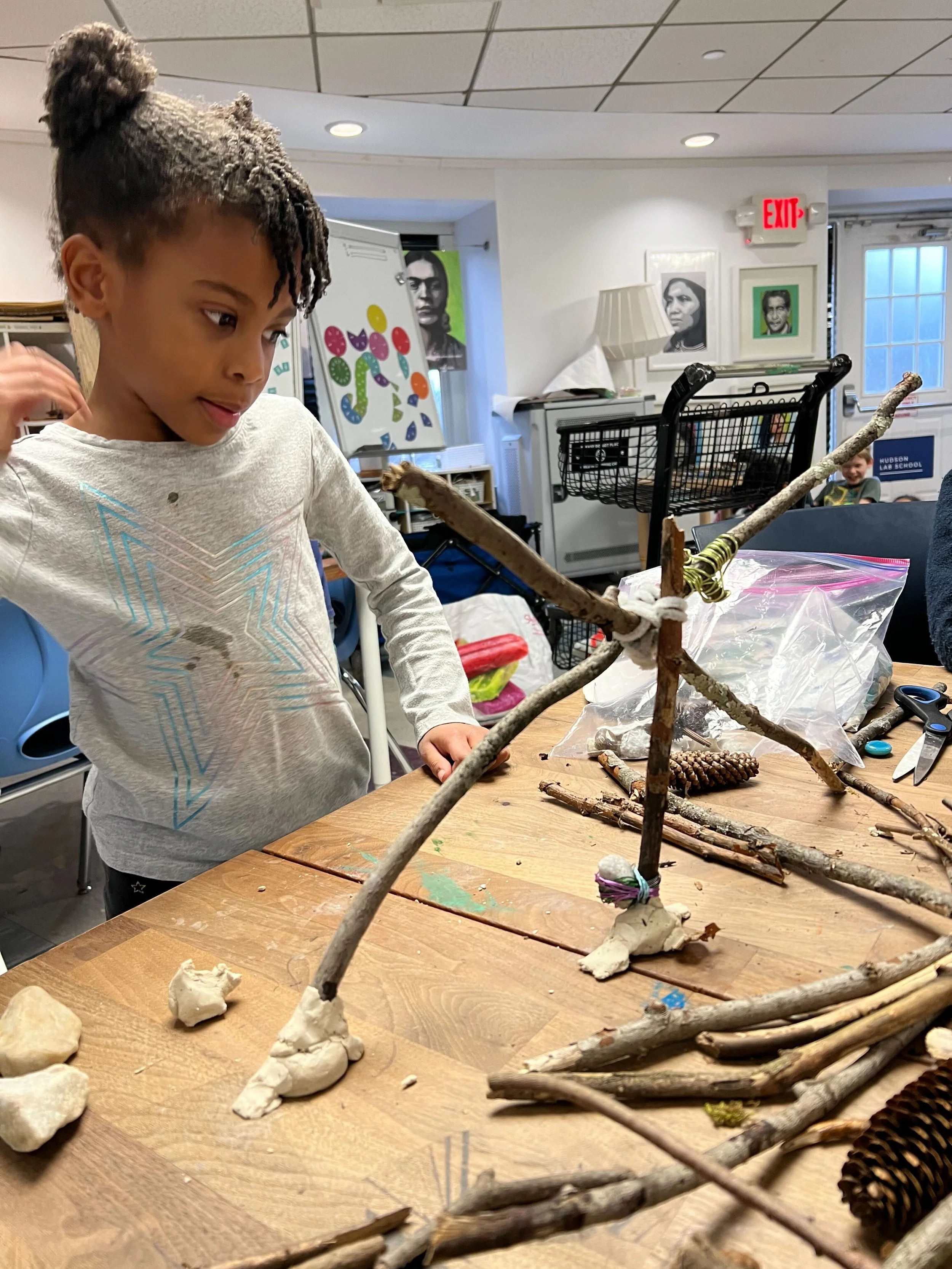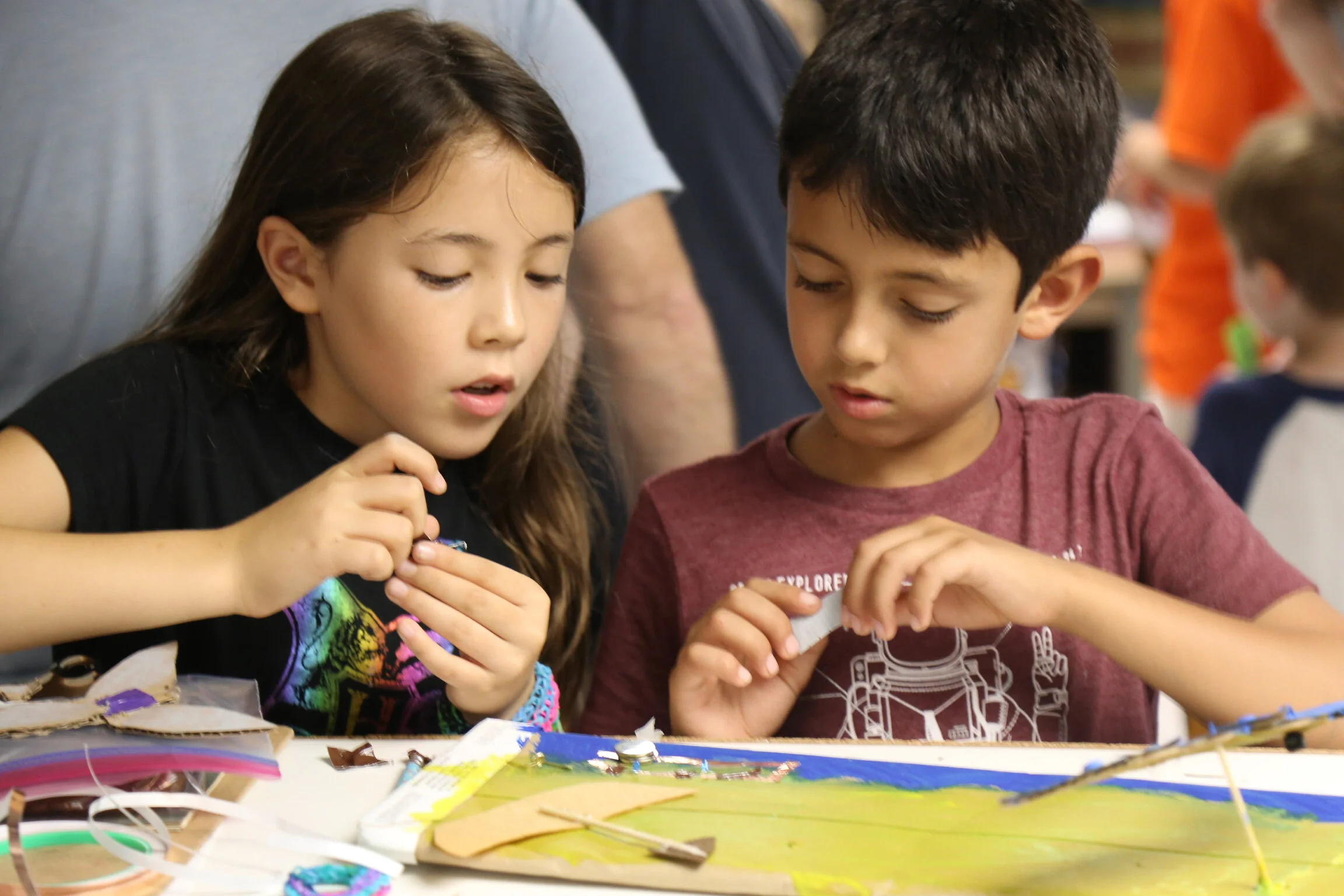
Lower School
AT HUDSON LAB SCHOOL
Where childhood wonder meets learning for tomorrow.
At Hudson Lab School, children are the protagonists of their own learning. We seek inquisitive, curious minds—and we draw out the very best in each child. Guided by highly skilled teachers, students dive into interdisciplinary, project-based learning where collaboration, creativity, and critical thinking are at the heart of every day. By tackling real-world challenges, they develop resilience, confidence, and a genuine love of learning.
Our approach nurtures the whole child—mind, body, and spirit. Time spent in nature fuels active minds, builds environmental stewardship, and inspires wonder. Our intergenerational program connects students with older adults, fostering empathy, understanding, and meaningful relationships beyond the classroom.
At Hudson Lab School, success is not just measured in grades but in growth—marked by curiosity, resilience, and collaboration. Here, we nurture the whole person, preparing children to thrive in school and in life.
-
Our K-1s enjoy learning through projects and play designed to inspire a love of learning and creativity while incorporating social-emotional skills and HLS Learning Outcomes. As they start their journey, students explore ideas of identity, community, and inclusion through hands-on projects and learn through experience, empathy, and iteration.
Through cooperative play and collaborative problem solving, students practice expressing their opinions and feelings appropriately. They become independent thinkers and risk takers who construct meaning through their own learning experiences. As students develop fluency and confidence in their skills, they begin to build stamina for reading, writing, and listening to each other, and become more independent in their learning and problem-solving.
-
By second and third grade, students take on greater responsibility for themselves, their learning, and their communities. They are ready to take risks, compromise, negotiate, and work collaboratively. At this stage, they develop critical thinking skills, shift from concrete to abstract thinking, and learn to see multiple perspectives. They also begin applying foundational skills to new knowledge and modes of expression—for example, moving from learning to read to reading to learn.
To build deep understanding, students engage directly with authentic problems and materials. They tackle open-ended questions with multiple solutions and use evidence to support their thinking across math, social studies, reading, and science. Just as important, the social curriculum grows alongside the academic one. Through discussion, collaboration, and conflict resolution, students’ relationships become a vital part of their growth as learners and as members of a community.
-
By fourth and fifth grade, students have developed a more pronounced independence and take responsibility for their learning. They develop organizational skills and reflect on their own progress and growth. Students are critical thinkers and able to integrate their knowledge of the past, present, and future, so teachers provide opportunities for students to contextualize and create connections. Students are capable of expressing their observations and understandings in comprehensive and creative ways, ranging from writing news articles to collecting data and assessing its reliability. Partnerships and small group work provide opportunities for students to collaborate, develop initiative, and become more flexible socially.
The Classroom Experience
At Hudson Lab School, we believe that true intellectual development requires both academic rigor and social-emotional learning. Our mixed-grade classrooms, paired with small, skill-based group instruction, foster collaboration and mentorship rather than competition.
-
Our co-teaching teams spark creativity and collaboration, helping students learn the power of teamwork and innovation.
-
Our mixed-age classrooms let children learn from each other—aspiring to older peers and growing into leadership over time.
-
Small, skill-based groups ensure every child masters math, reading, and writing at the pace that’s right for them.
-
Daily Outdoor Time—on the Great Lawn, in the Wild Playspace, or on the Four Square patio—keeps students energized and inspired.
-
Our specialized programs encompassing hands-on tinkering, nature and gardening, digital arts, intergenerational learning and art serve as catalysts for broadening students' perspectives and deepening their connection to the world and their community





